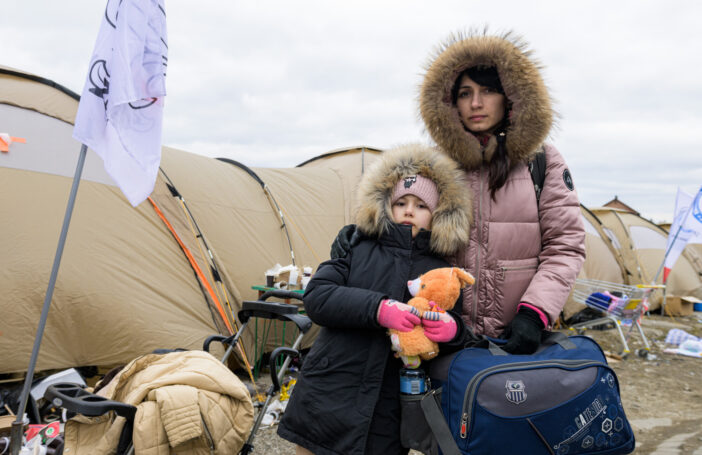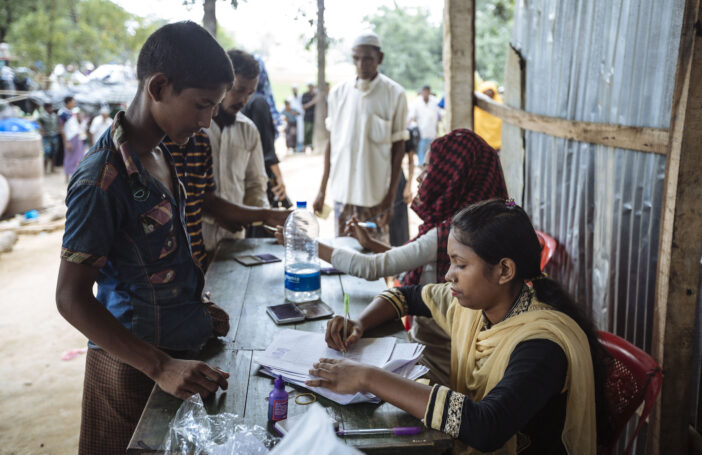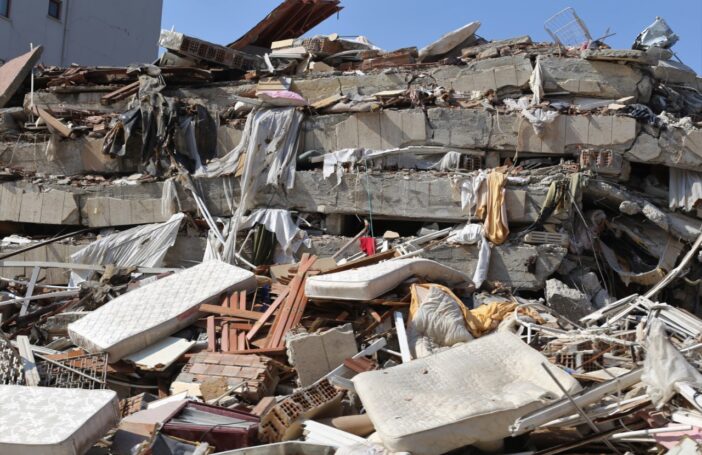The devastating earthquake and tsunami in Sulawesi, Indonesia, have shocked people around the world. Images of the earth liquefying, the terrifying screams as people watch a tsunami engulf the shore, and the wreckage left behind have led to a global outpouring of support and responses from aid agencies and NGOs.
Last week, Indonesia’s disaster coordination agency (Badan Nasional Penanggulangan Bencana, or BNPB) issued guidelines on the involvement of foreign aid workers, stating that they needed to conduct all activities through local partners, and be registered with government agencies.
The announcement has surprised the humanitarian sector at large, and some have called it confusing. World Vision Australia’s Tim Costello said it was “very strange”. Amnesty International Indonesia have labelled it “a sad example of bureaucracy trumping humanity”.
The official announcement is helpfully written in English in an infographic on Twitter.
Regulations for International NGOs qim to provide assistance in Central Sulawesi Province. pic.twitter.com/2LhypKpJ12
— Sutopo Purwo Nugroho (@Sutopo_PN) October 8, 2018
The same Twitter account has posted images of shelter tents with Chinese characters on them, retweeted World Food Program photos of Australian aid shipments, celebrated Canadian aid supplies arriving, and been thankful for JICA supplies. The World Bank and UN have visited, with the former offering a US $1 bn package. It’s not a response that is turning its back on international relief, contrary to some commentators.
Following criticism, the policy on foreign aid workers and volunteers was further clarified:
“Letting foreigners enter disaster-hit areas without limitations and clear management would just give the country’s task force more work,” said BNPB spokesperson Sutopo Purwo Nugroho.
Sutopo told reporters 22 nationals had been asked to leave due to not having the necessary expertise, and having failed to register with the Ministry for Foreign Affairs or their respective embassies.
“There’s no harm in [volunteers] coming, as long as they meet our requirements. What’s so hard about reporting?”
To those who are trying to frame this as foolhardy, or a political decision due to upcoming elections, issues of sovereignty, or a move to protect Indonesia’s apparently fragile sense of nationalism, there is a real need to take a step back.
Indonesia is quite experienced in dealing with natural disasters. It is a country where a substantial amount of aid has been invested in building local capacity to do so. And after the Boxing Day tsunami hit Aceh in 2004, it is also quite experienced in dealing with the hodge-podge of do-gooders that rock up when big disasters unfold.
The Australian Council for International Development’s (ACFID’s) response has been balanced, noting the pressures of a huge influx of international actors on government and the need to work with local agencies rather than to take over. It also noted that its members have not reported problems from the rules in their responses. (However some NGOs from abroad have told media they couldn’t get access.)
It seems that Indonesia’s intention was not to kick out experienced international NGOs, many of which have substantive national offices in Indonesia with predominantly national staff (and a quick Google shows they are currently very active), nor to boot out relevant technical experts. It is to try to exercise some kind of control over the cavalcade of randoms who might not be all that helpful, may have niche interests and who are not coordinating with government. In other words, those acting from self-interest.
BNPB has a solid reason for wanting to exercise some degree of control, based on past experience. For those who have forgotten some of what went on during the aftermath of the 2004 tsunami, here’s a quick reminder.
- A boat building program for local fisherman built boats that were unsuitable for use at sea (pdf, p. 23) This was part of a larger explosion of boat building programs that led to a risk of overfishing (pdf).
- Child trafficking of ‘orphans’ (here and here).
- Too many new houses were built in some areas, or not built appropriately for local needs [pdf], leading to ‘ghost villages’ still uninhabited ten years after the tsunami.
- An influx of unwanted items, like expired or inappropriate drugs and too many prosthetic limbs.
- The capacity of local NGOs was decimated by the influx of international actors, who poached a lot of their staff.
- High inflation.
(Robin Davies’ powerful pieces on his time in Aceh in the immediate aftermath of the tsunami are also well worth reading for perspective on the challenges in response to a large-scale disaster.)
Life in Aceh has well and truly resumed after mass devastation. In that sense, aid worked. But there was a lot of wastage and questionable behaviour, which is what BNPB seems keen to avoid.
As someone who spent several years living in Indonesia, working mostly in the media, friends and former colleagues have been reporting from the ground in Palu and Donggala (a mix of Australian and Indonesian nationals, which seems relevant to note). The stories and images are heart-wrenching. It’s understandable that people want to help.
But the one thing they have all noted is the incredible generosity of local people. The kindness. The resilience. The problem-solving.
Those may sound like clichés, but they aren’t hard to believe if you’ve spent time in this part of the world. And it makes sense to build on the good that is left.
Of course there is a need for an urgent response in Palu and Donggala, and of course there is immediate suffering to address. The rebuilding task is huge.
No government-coordinated response to a major disaster will ever be perfect. In six months or a year there will be many lessons learned on what could have been done better. There will always be particularly Indonesian quirks about an Indonesian disaster response (like the fact that West Sumatra always sends heaps of beef rendang…). The response is already being criticised.
But harnessing local capacity makes sense. People in the sector go on about it all the time – including at the World Humanitarian Summit in 2016, where “localisation”, as it is called, was adopted as one of the major objectives in humanitarian responses world-wide.
And for the rest of us, without any useful skills in disaster recovery to offer the good people of Palu and Donggala, we should just give money.






We had some enormous challenges with international volunteers coming after Hurricane Maria in the Caribbean island of Dominica. However, not due to a lack of qualification or competencies, in fact the unqualified, inexperienced, mostly young women, volunteers coming in to physically build earthquake and hurricane resistant schools with All Hands and Hearts who worked with our organisation Lifelinedominica.org as Local Partners worked brilliantly and not only donated two primary schools and three Pre Schools but challenged gender stereotypes significantly. This was a far more effective impact that the UN workers from Pakistan who had no clue about the Caribbean, our history and our particular GBV issues.
They did arrest and bring in for questioning a Caucasian member of an Indonesian NGO because he didn’t look Indonesian. He was released after the questioning.
Could you provide a link or source? Haven’t seen that.
Thank you for your valuable insight and clear explanation. By reading the article, it seems you have experience communicating with local people in Indonesia and didn’t fall in local stereotype in mind by foreigner. I agree that communication should be improved and complaints can be managed accordingly and I think BNPB has acknowledge it.
Your last paragraph is a little bit straight, but it’s true 🙂 : “And for the rest of us, without any useful skills in disaster recovery to offer the good people of Palu and Donggala, we should just give money.”
A really good piece, which makes the case for Indonesian sovereignty and competence in handling a most difficult situation. The shemozzle that was Haiti after the earthquake in 2010 was (perhaps) the low-water mark of such situations, as the good the bad and the ugly among foreign NGOs and agencies piled in to multiply the havoc.
Thanks for this intelligent and insightful article. In effect what Indonesia did was say that we have our own disaster management system, running in our own national language, and if you don’t know it, understand it and can work comfortably within it please don’t come. Also then listing exactly what help they did need. This was what happened in Japan after the tsunami, what happened in China after the earthquake, and it makes sense. There can be no doubt though that this was not as well-communicated as it might have been, and that a lack of clear rapid mechanisms hindered critical aid that was needed and confused the entire national and international aid community at the cost of the affected community.
What does this tell us? It tells us that Indonesia’s decision to not request international assistance was their right and they exercised it, but that work needs to be done on improving communication mechanisms, MOUs and rapid request and approval systems, all of which are challenging and complex in a very hierarchical pillared society. There can be no doubt that Indonesian national response capacity is stretched with both Lombok and Palu, but also should be no doubt that trying to merge two very different coordination and response mechanisms may only add to the confusion.
The other lessons that need to be learned are a) the need for disaster response plans for when local government is no longer capable of functioning and b) clear public plans for when something is beyond the capacity of BNPB and the military is called in, so both the military, government and civil society can be trained for this and c) most importantly an increased awareness that their is no such thing as a natural disaster, only a natural event, that results in a disaster of we are insufficiently prepared. Although there are many strange and dangerous natural events in Indonesia, as Palu has shown here are only three risks 1) town planning: that communities are allowed to live in areas with a high probability of being struck by severe natural events, without adequate mitigation measures in place; 2) that buildings and infrastructure are not adequately designed and built to survive the natural events they will face; and 3) that communities are under prepared and under trained to prepare for and respond to disasters when they do occur.
Underlying all of this is a much more complex discussion about perceptions of risk, and each individuals role and obligation as an active participant in their own risk reduction. Indonesians are some of the most accepting people on earth. Accepting foreigners and their help, though this time within limitations, but also accepting risk as gods will, this may also need to change if other changes are to occur. Some bold decisions need to start to be taken to change paradigms and reduce risk and some improved diplomacy is needed to communicate those solutions to the outside world.
I remain stunned that there are more than 300,000,000 million speakers of Malayu/Indonesian, and yet it is still not even an official language of the UN, and high level meetings continue to be undertaken here with inadequate or sporadic translation, with the expectation that Indonesian attendees will be able to cope… Imagine doing that in France, which is a an official UN language, with far less people who speak it. The Euro-centric approach to engaging in Asia needs to change and the localisation agenda needs to be taken seriously.
Great comment David, thank you. Definitely needs to be better communication. And there is still a huge amount to do on preparedness as well. And unfortunately there’s been some questionable decisions that may have delayed assistance reaching people. But this has been Indonesia’s policy for a while, there seemed to be a bit of an expectation from some INGOs that they wouldn’t actually stick to it and would just open the doors when the next big thing happened. So there’s also room for reflection (and better preparation) for INGOs as well.